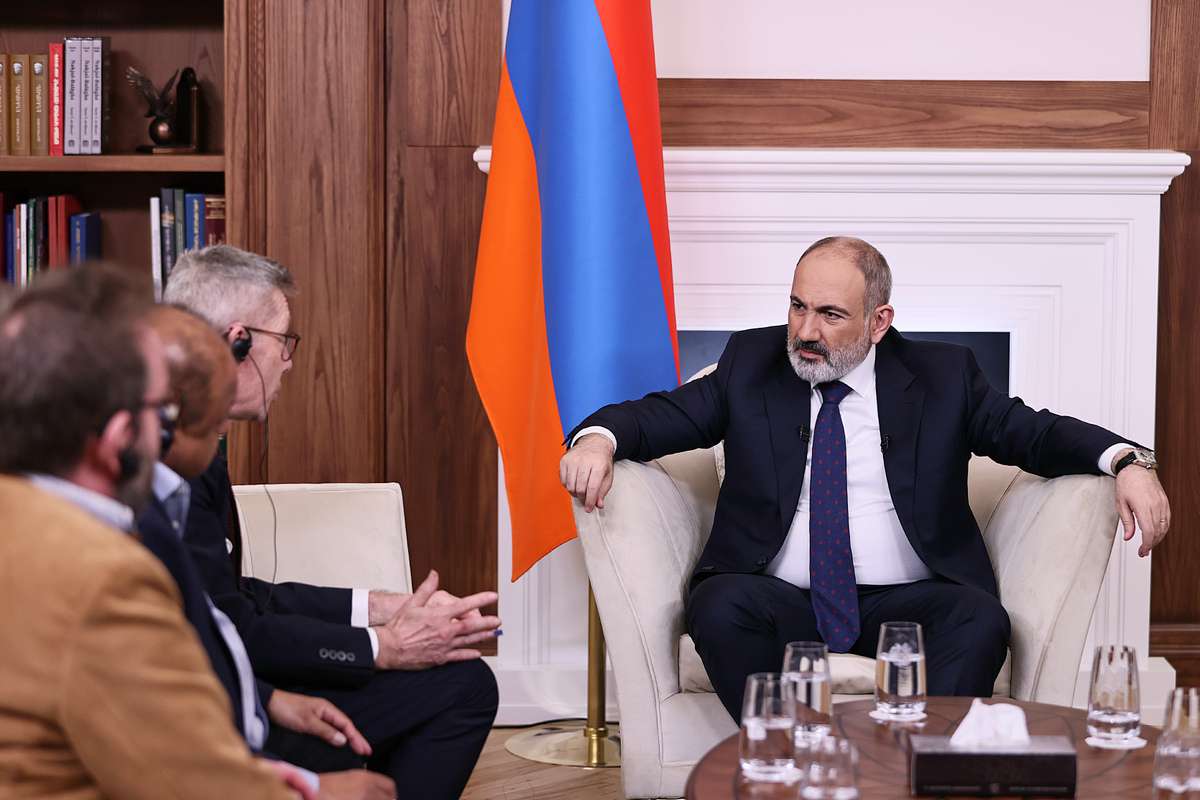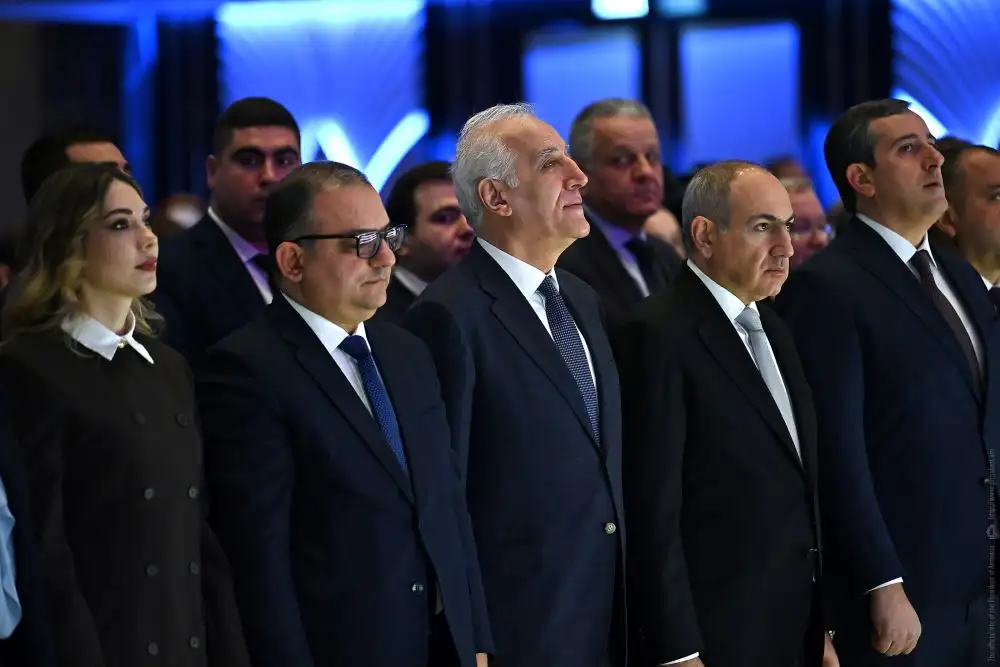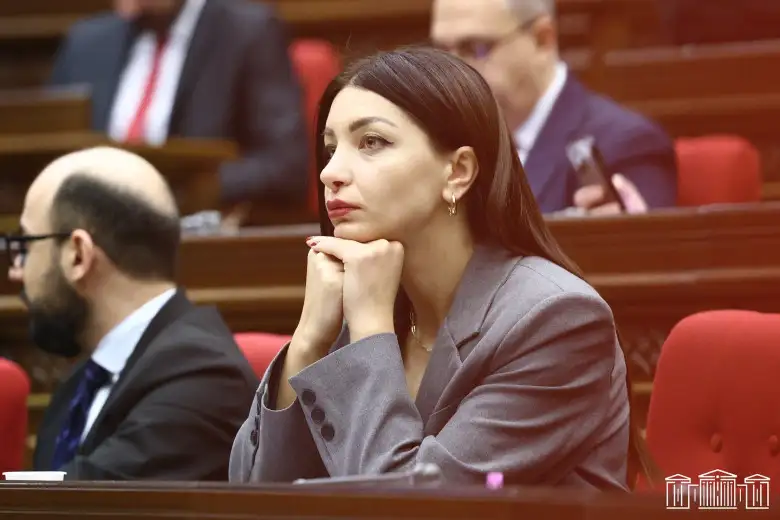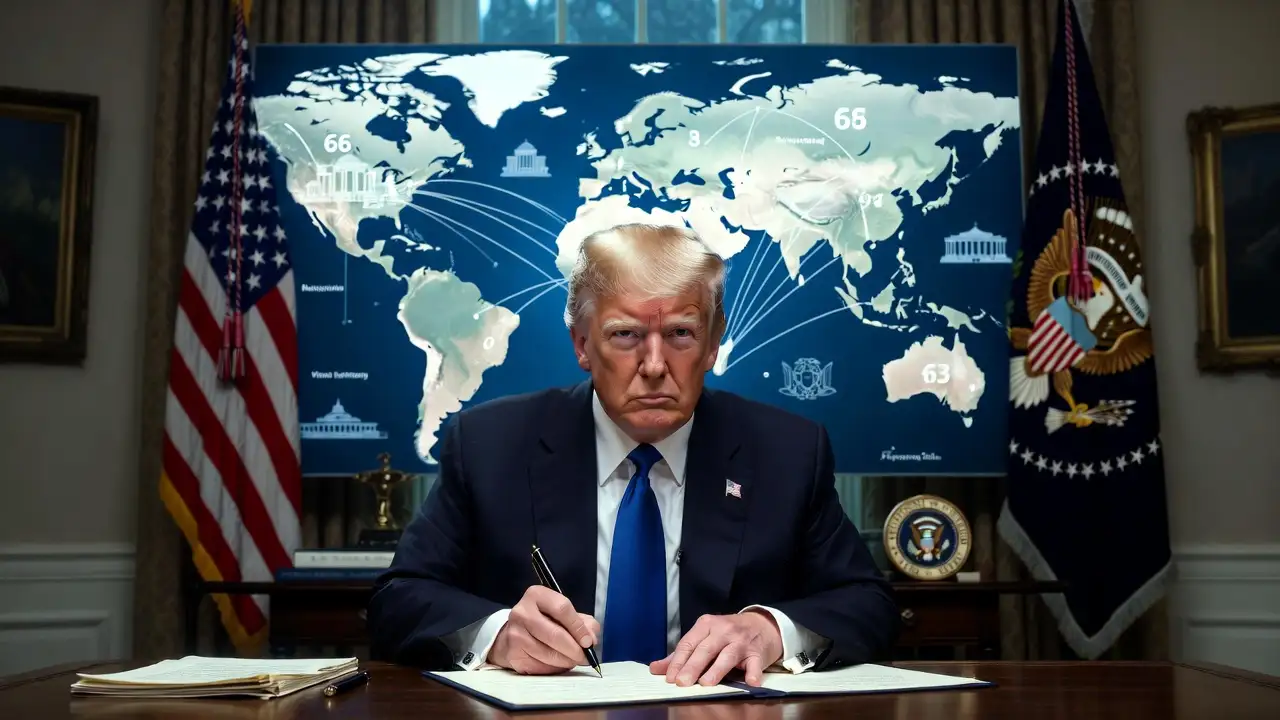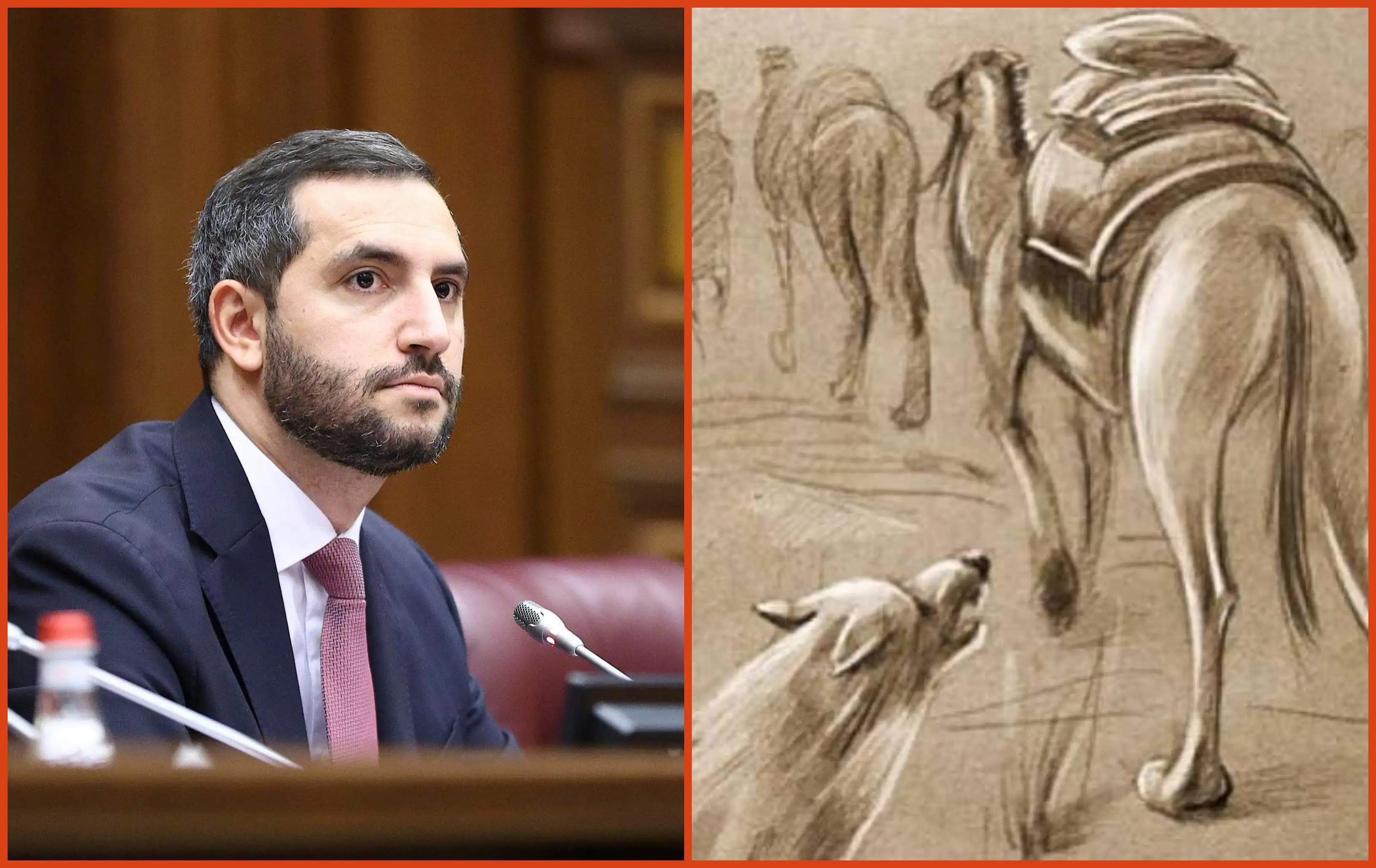Armenian Prime Minister Nikol Pashinyan announced at a meeting with British media representatives that Armenia and Azerbaijan are the first beneficiaries of peace.
"And this theoretical thesis, which, of course, sounds very theoretical, can get an objective expression step by step. In the last 5 months, we have reached two significant agreements with Azerbaijan. It is his expression that, in the end, the people of Armenia and Azerbaijan are the beneficiaries of peace.
Of course, investors, yes, global economic stability, yes, but first of all, we are the beneficiaries of peace. In this regard, several statements from Azerbaijan that refer to the reforms and modernization of the Armenian army worry us. Why? You rightly noticed that if we look at the ratio of the military budgets of Azerbaijan and Armenia, there is a significant imbalance there, and yes, that ratio is also shaped by the revenues of Azerbaijan through the transactions you mentioned.
But what worries us is that even in the conditions of this imbalance, Azerbaijan reacts very aggressively to Armenia's reforms of the armed forces and the acquisition of weapons and equipment, although we all understand that these achievements have exclusively defensive significance.
Also, I have said several times that no country can challenge any other country's right to have a combat-ready military. We need to record that having a combat-ready army, yes, is sometimes used for war, but having a combat-ready army is also essential for peace and creating the right balance of power. This is also the reason why, when Azerbaijan raises these issues, in particular, the purchase of weapons by us, which is not more than 15-20 percent of the guns purchased by Azerbaijan, both financially and in terms of volume, and is mainly defensive and has defensive significance. Still, we also do not leave those statements unanswered.
We proposed that Azerbaijan create a mutual bilateral mechanism of arms control. In other words, to provide our weapons within the limits of these mutual agreements and not provoke an arms race in our region.
We have proposed and continue to suggest that a mirror withdrawal of troops occurred in 1991 from the border recorded by the Declaration of Alma-Ata. That record, that offer still stands. We have proposed to sign a non-aggression agreement even before reaching a deal on a peace treaty because it is a straightforward agreement that we, especially now that in 1991, We put the Alma-Ata declaration at the basis of our demarcation and demarcation process, can it is a straightforward document, sign that we will not attack each other, based on the fact that we have recognized each other's territorial integrity and have no territorial ambitions towards each other.
Therefore, by this logic, we should continue to work, and the agreement that the demarcation commissions of the two countries reached last Friday, such agreements themselves can contribute to stability.
You know what, let's ask a similar question. Look, we are talking about military budgets, but of course, a stable and long-term peace will give us all the opportunity to spend those funds, at least not in that volume, and invest the remaining funds in solving our countries' socio-economic problems.
This year, we have made much progress with gross domestic product per person, but there are many social problems in our country and Azerbaijan. When it is possible and when there is peace, it will make it possible for the governments of both countries to make these investments in socio-economic developments, and secondly, so that at some point, we also think about regional economic developments.
In the context of regional economic developments, we have adopted and implemented the "Crossroads of Peace" program, which I hope you are familiar with. Our thoughts go in that direction. We are not preparing for war; we are preparing for peace. On the other hand, until we have confidence that the Republic of Armenia will not be attacked, we naturally have to develop our defense capabilities. Moreover, I said that in 29,743 sq. km of territory, the Republic of Armenia has no ambitions in any direction: neither south, nor west, nor north, nor-east. And we believe that we should build and develop our sovereignty and independence on this foundation," the Prime Minister noted.




